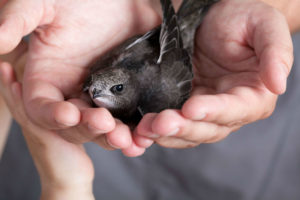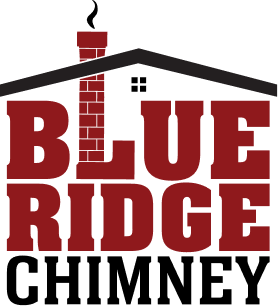While some people do enjoy hearing the birds begin singing in the spring, even those people get annoyed when those chirps are coming from your chimney. Unfortunately, it is quite common for  birds and other wild animals to choose chimneys as nesting spots since so many trees are being cut down for construction and development purposes. To these critters, your chimney can look just like a hollow tree that will be a safe place to build a nest. Although the chirping and scurrying sounds can be irritating, an invasion of your chimney by wild animals can be problematic.
birds and other wild animals to choose chimneys as nesting spots since so many trees are being cut down for construction and development purposes. To these critters, your chimney can look just like a hollow tree that will be a safe place to build a nest. Although the chirping and scurrying sounds can be irritating, an invasion of your chimney by wild animals can be problematic.
Not only is there the possibility of insects and germs getting into your home, but birds, squirrels, raccoons, and other animals can cause damage to the inside of your chimney and maybe even to other parts of your home. There is also an increased risk of a chimney fire and a carbon monoxide leak. In our years of working on chimneys in the Shenandoah Valley, we have encountered the problems caused by wild animals getting into chimneys. We would like to tell you more about this issue as well as the best way to prevent it from ever occurring in your chimney.
What kinds of damage and other problems can wild animals do to my chimney?
Wild animals like squirrels and raccoons have clawed feet that can scratch and break your chimney liner to the point of it needing to be repaired or replaced. Another type of problem is the animals bringing along insects, parasites, unpleasant odors, and germs with them into your chimney. The worst case scenario is when a wild animal becomes trapped and dies inside your chimney.
The stench left behind can be a challenge to remove, but Blue Ridge Chimney Services knows how to get rid of that odor and make your chimney smell fresh again. Even when the animals have left on their own, the nesting materials and other debris they leave behind in your chimney can pose serious safety risks. Your flue could be blocked, which could lead to a chimney fire or a carbon monoxide leak. Both of these hazards could be deadly.
What should I do if wild animals are nesting in my chimney?
Blue Ridge Chimney Services wants to strongly advise you against trying to remove any wild animal from your chimney on your home. This could be a dangerous situation that could lead to severe injuries. If you suspect or know wild animals have moved into your chimney, contact us as soon as possible to get professional help. While most wild animals can be removed at any time, there is an exception if you have a family of chimney swifts nesting inside the flue.
According to the Chimney Swift Conservation Association, these birds are protected by federal law under the Migratory Bird Treaty Act. If anyone moves these birds, their eggs, and/or their nests while the nests are being used, they could be fined. If you do have chimney swifts nesting in your chimney, you will have to wait until they leave on their own in the fall to return to their winter home in South America to have us sweep your chimney to remove the nest.
How can I keep birds, squirrels, raccoons, and other animals out of my chimney?
In order to prevent wild animals from getting into your chimney, Blue Ridge Chimney Services recommends having a chimney cap professionally installed on the top of your chimney. It is very important that the chimney cap be equipped with mesh metal sides that will make it impossible for any wild animal to enter your chimney. We will ensure when we install the cap that it completely protects your chimney from not only wild animal invasions but water leaks as well.
Keep your chimney safe from wild animals and birds. Contact us at Blue Ridge Chimney Services today to learn more about our chimney cap sales and installation services.
